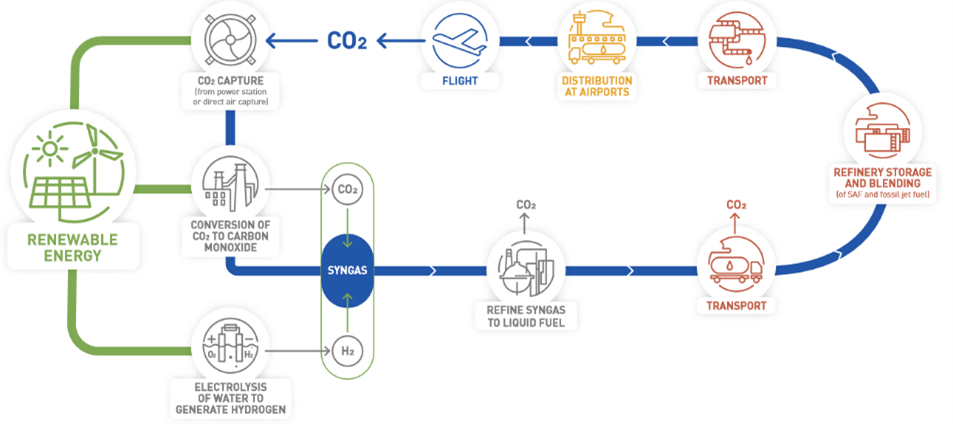Construction and design of a Fischer-Tropsch reactor for the decentralized production of sustainable aviation fuels
-
place:
Masterthesis
- contact person:
Start date: possible immediately or by arrangement
Supervisor: Harald Bürgmayr (harald.buergmayr@kit.edu)
Supervisor: Prof. Dr. Roland Dittmeyer
Background & Motivation
Sustainable Aviation Fuel (SAF) is becoming increasingly important in the quest for environmentally friendly air travel. Sustainable kerosene produced through an innovative Power to Liquid (PtL) process, utilizes renewable energy to convert carbon dioxide and water into liquid fuels, offering a promising pathway to significantly reduce greenhouse gas emissions compared to traditional jet fuel. This reduction is vital in combating climate change and meeting global emissions targets. Moreover, SAF is designed to be a "drop-in" fuel, meaning it can be used in existing aircraft engines and fuel infrastructure without modification, facilitating a smoother transition to sustainable practices.

The Institute of Micro Process Engineering (IMVT) focuses on the decentralized PtL applications from carbon dioxide, water and renewable electricity through their in-house invented micro-structured reactors technologies. They have developed a process to produce synthetic paraffine kerosene (SPK) according to the ASTM D7566 standard from Fischer-Tropsch (FT) feedstocks. As SPK is currently only allowed to be blended up to 50% with fossil-based kerosene, the aim of the BMDV-funded REF4FU project is to increase the content of specific aromatics to meet the requirements for 100% approval for use as aviation fuel.
Tasks
• Literature research on existing FT-reactors and their use for the production of sustainable fuels
• Conception, construction and design of a FT-reactor with technical specifications & process parameters
• Commissioning of the reactor and an initial test campaign
• Documentation and presentation of the achieved results
Requirements
• Current master program in process and chemical and process engineering, mechanical engineering, chemistry, materials science and engineering or similar
• Solid understanding of chemical processes and reactor design
• Enthusiasm for the energy transition and climate protection
• Independent and structured way of working
• Good communication skills in German and/or English
